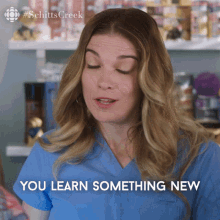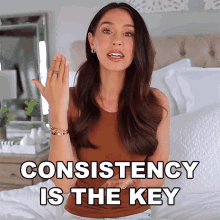Introducing Time to Talk Day

Another mark in our calendars, Tine to Talk Day is here once again. Whilst there is a mark of importance for the day as a benchmark, this should also be a time for reflection. That is… A time to reflect on our culture surrounding mental wellbeing, whatever the context.
Labels

Whilst there are so many labels out there, it is important to remember that, whilst some words and pieces of terminology can be unhelpful, in some cases, the opposite can be true.
Just the other day, I was speaking to someone about the fact I had gone to bed, with this worst possible feeling of being unable to explain in logical words and sentences, how I was feeling. My mind was completely blank. It was like the Titanic had hit the iceberg all over again. Little did I know, that there is actually a way I could explain this feeling in 1 word. That word being… Alexithymia.
Alexithymia is a word linked to the neurodivergent community, as it is often associated with conditions such as ADHD and Autism, the latter of which is one of two neurodivergent conditions I have, the other being Dyspraxia.
Another thing I have a problem with at times, is expressing my thoughts on the spot. It takes me a long time to think of how to articulate what I want to say. And I place this kind of importance on what everyone else thinks about certain things before my own thoughts. Again, little did I know that this is essentially what’s known as Imposter Syndrome.
The importance of words like this to me, at least helps me to understand myself better. For people who aren’t neurodivergent, it may be difficult to understand why these labels actually do anything. But for someone like myself, without the acknowledgement of the issue, there can’t be a logical pathway to further support.
Being Psychologically Safe

When you are approaching mental health conversations, of utmost importance is making sure that the individual you are speaking to feels psychologically safe to engage in that conversation.
I am incredibly fortunate that within my circle, I have a number of people who may not know the answers, but do have an element of lived experience. In general, these are the people that I gravitate towards more. It is much easier speaking to someone who may have a neurodivergent individual (s) in their family, so they at least have a decent base to begin the conversation from.
But that’s not to push the novices away. I would actually be inspired to try and be vulnerable, for lack of a better term, in front of those who perhaps are less of an expert. Because, let’s face it, you can’t become an expert at anything unless you learn.
An element of caution is needed, however. It is important to think before you ask those deep questions. I am someone who appreciates the deep questions, as I’m not great with small talk, though it does provide a good distraction at times. I’d much rather try and find a solution to a problem and avoid it and watch it manifest in potentially more dangerous ways. There are, fortunately, many resources out there that can help people to instigate conversation around mental health topics.
Unhelpful superlatives

We can often get caught up thinking about superlatives, and the reason as to why I think they are unhelpful, is the competition behind it.
Don’t get me wrong, I think with so many things that get created within the mental health environment or the neurodivergent environment or anything similar is created with good intention. But when it comes to a benchmark day like Time to Talk Day, and there are certain resources you get given as a kind of token gesture to take part, there are elements of it which you may feel unable to fulfil.
Take making a drink for someone as an example. Sure, if it’s a glass of water, brilliant. That should be straightforward to achieve. But I wouldn’t want to be the one who messes up the consistency of someone’s cup of coffee or tea. I’ll gladly leave that to someone else. And that’s even before I spill a quarter of it due to not being able to grasp the mug in my hand very well.
This is why the simple things are so important. Rather than who can be THE BEST at making someone a coffee or who’s got THE MOST life-changing tips to turn your life around, in my mind, it is about the little things. The small, manageable tasks we can do, which don’t involve any sort of competition. Consistency of the messaging is more important than having loads of different ideas, that actually begin to overwhelm a person rather than help them.
Helpful Podcasts

The last thing I wanted to share with you, are some helpful podcasts, which discuss mental health topics. Some of these podcast hosts, are also MIND ambassadors.
Firstly, is Happy Place, hosted by Fearne Cotton. She has had numerous guests on her podcast, including Dame Kelly Holmes, and a man I rate as a COVID lockdown hero, Joe Wicks.
Another podcast I enjoy is Open Mind, by Frankie Bridge. Frankie, just like Fearne, is an ambassador for MIND mental health charity. The podcast is again a space where she and her guests discuss the breakdowns and the breakthroughs, with the message being: Speak out. Ask for help. And be helped.
How could I forget, the brilliant High Performance Podcast, hosted by Jake Humphrey, as my final pick. As sport is one of my special interests, I love to listen to what creates that high performance environment. But don’t be fooled, whilst many people who have been interviewed on the podcast are from the world of sport, they have had other high profile individuals on there too. The most notable of recent time has to be none other than Gordon Ramsay. I genuinely loved seeing this different side to the hot-headed, steam coming out of his ears, Michelin Star maverick.
If anything, I feel like listening to these kinds of podcasts help people to take stock, and realise they want to show up better in other contexts in their life. Perhaps the question of “how can I change my pace and perspective in my life?” springs to mind here.
Closing statement

Here is to making #TIMETOTALKDAY more than just one day. But one day of importance like this in the calendar, should be the lightbulb moment.
Let’s all learn together, and create a culture of mental health helpfulness, and leave behind the mental health hindrance.